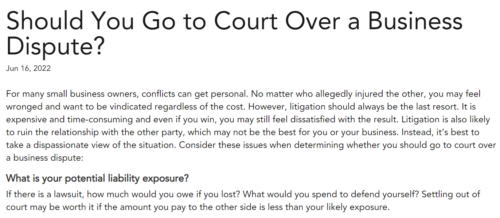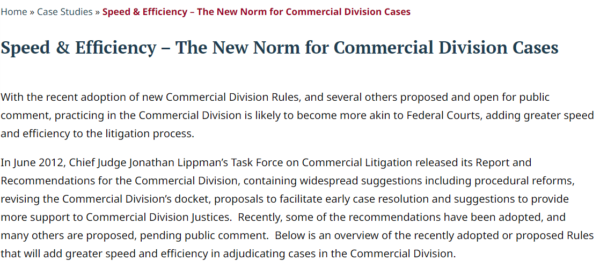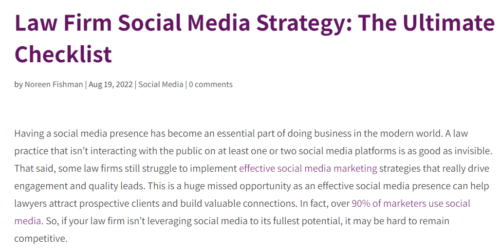
What Are the Top Law Firm Blogging Topics?
A well-curated blog can do so much for your law firm. Blogs not only push your content and promote your expertise, but they give you more material to leverage in social media and help boost your search engine rankings (SEO). In short, if you have a digital strategy, then blogging needs to be a part of it. But making sure your content is great is important – and how do you know what resonates? We’ve compiled a list of the best blog formats for law firms, along with some ideas on how to promote your blog content for maximum visibility.
Top Blogging Formats for Law Firms
1. “How-to” Guides
These blog posts help people to learn more about a topic of interest. Naturally, your best bet is to explore the areas that your practice specializes in. Topics ranging from “How to Find the Best Attorney for You” to “How to Protect Your Company Against Workers Compensation Claims” are informative to readers.
2. Answer a Legal Question
Whether you answer a single, commonly asked question or create a lengthier FAQ article, blogs that answer questions will be very helpful to readers. You want to give advice that’s less specific than what someone would receive in a consultation, but more information than a general search query would provide. It’s also a smart idea to include a disclaimer stating that the post does not constitute a client-attorney relationship. Some examples include “How Often Should I Touch Base with My Attorney About my Case?” or “Does my Case Qualify as Wrongful Termination?”
3. Lists, or “Listicles”
Itemized lists have become quite popular, and for good reason. These blogs are quick, simple pieces that offer a list of answers. Simply put, they help the reader understand the topic, and then offer various ways to address the issue. Consider blogs that begin with titles such as “Top 4 Ways to….” or “The 5 Steps…”. And better yet, this format can also allow your firm’s content to become a featured snippet.
4. Announcements
Though you want to highlight your law firm’s achievements, these blogs should be fewer and farther between than other types. Think of the common 80/20 rule, where 80% of your content is non-promotional and focuses on providing value, and 20% of your content is related solely to talking up your firm. Think about any awards your firm has won, your latest partnerships, or items that share a bit of culture such as volunteer events or highlights of firm activities. This type of content usually receives high levels of engagement when shared on social media.
5. Predictive headlines
Blog posts that share insight about the future are increasingly valuable. If you can make predictions around legal topics or share key takeaways for the upcoming year, you’re more likely to come up in search results and more likely to be trusted as an expert.
6. Case Studies
If you’d like to highlight your firm’s successes, consider uploading case studies in a blog format. Follow the typical case study format of situation, solution, results, but consider expanding upon the case study more and connecting it to your knowledge and background on the legal topic that’s exemplified in the case.
7. Checklists
Checklists are like a combination of a listicle and a how-to guide. They’re simply useful pieces of content that users can turn to when navigating the legal world. It could be something like ‘A Checklist for Filing an Insurance Claim’. The list will go through the items a user would need in order to fulfill that task.
8. Expert Roundup
Expert roundups are traditionally done by finding a slew of experts in your industry and compiling their knowledge and advice into a FAQ-style blog. For law firms, you can round up the experts from your firm. This is a great way to showcase lawyers as thought leaders.
Law Firm Blogging: A Few Tips
Once you’ve settled on the proper blogging platform for your law firm, try reviewing this free eBook for tips, and develop your blog with these tactics in mind:
- Keep it relevant to readers – Above all else, readers are looking for relevancy. Make sure it’s always helpful and informative at a minimum.
- Be creative – Don’t just regurgitate the same topics you see on every law firm’s website. Approach topics differently and think of new ways to position information or new questions that haven’t been broadly covered.
- Titles are important – Remember, titles are the first thing a reader will see. This is how they determine if your content is worth clicking on or not. Titles need to spark interest while also conveying the subject matter of the blog (and don’t forget to limit jargon).
- Keep your audience in mind – It’s important to keep your readers top of mind when creating content. Use vocabulary that will be most familiar to them, and focus on answering questions that matter the most to them.
- End your post with a call to action (CTA) – One of the most effective and most overlooked methods for generating leads and conversions is to simply add a CTA to the end of your post. Decide exactly which action (just one) you want your readers to take, and then make it really clear at the end of your post.
- Keep SEO practices in mind – Law firms should always aim to write and publish blog content that’ll rank highly on Google, and SEO is the bridge that’ll help you get there. Keep in mind that blogs should be at least 500 words and include a featured image (with alt text) and meta description. See: 10 Tips for Writing an SEO Friendly Law Firm Blog Post
Promoting Your Law Firm’s Blog: A Few Tips
Even if you’ve thought of great topics and written valuable content, if you don’t properly promote your blog content, nobody will read it and you won’t have much success.
- Feature your blog prominently on your website. It’s important that your blog is accessible. Consider making your blog its own subpage, with navigational tabs available that will lead readers to the desired content.
- Promote your blog posts on your social media. Once you’ve created some blog content, be sure to mention it on each of your social channels, including Facebook, LinkedIn, Twitter, etc. Make sure every profile includes your contact information and links to your blog and website.
- Include featured blog content in your email newsletters. Keep your audience informed about what’s going on in your industry and at your firm.
Takeaway
There you have it – the top blogging topics for law firms. We hope this post has you inspired to start creating more content your audience will love to read. Remember, it’s important to blog consistently if you want to reap the benefits. At the very least, your law firm should be publishing one blog per day.
Are you lacking the time and resources to keep up with a consistent law firm blog? We’ve got the largest cadre of legal writers and journalists in the industry, helping to take your idea and write the content as if you had the time to write it yourself. Let our experienced content professionals help you tell your story. Contact us today for a consultation.
This post has been edited and republished from Jan. 20, 2021.
Are you ready to get started generating new, qualified leads?
Contact us to get started and let us help you energize your digital marketing and business development efforts.
Contact Us






